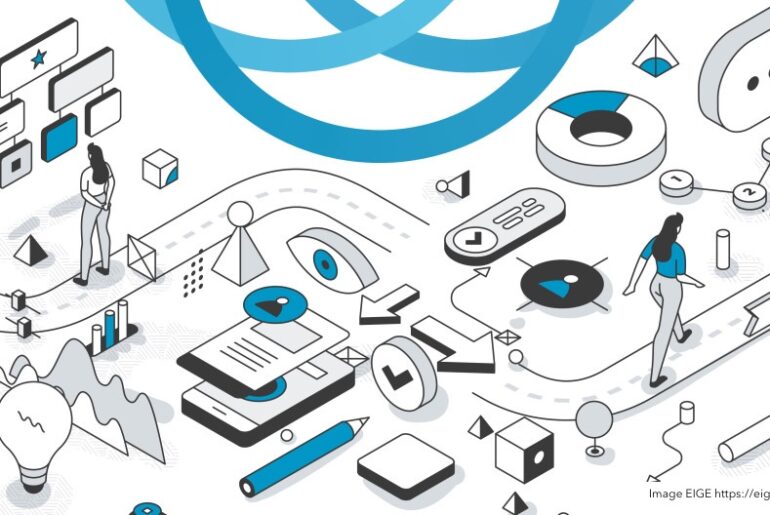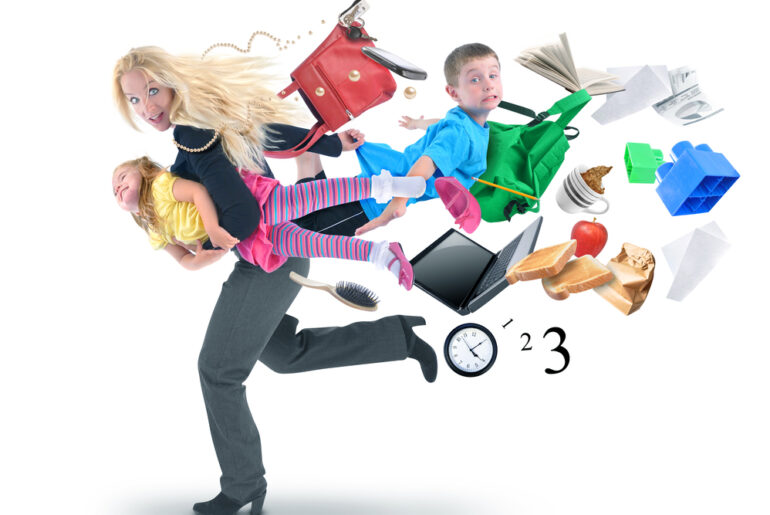Our commitment to the five-year EU Policy Agenda (2024-2029)
The EU Commission’s new priorities fall well within our advocacy actions. In line with our mission – to fight for the rights of mothers and families – we will focus our attention on the following pressing issues:
1. Supporting people, strengthening our societies and our social model
We will contribute to the EU’s ambitious Action Plan to implement the European Pillar of Social Rights (EPSR), ensuring that this Action Plan makes the principles a reality for mothers across the Union.
 Within this EPSR Action plan we will focus on those initiatives that address poverty, as mothers are more likely to be economically disadvantaged than the general population. These will include:
Within this EPSR Action plan we will focus on those initiatives that address poverty, as mothers are more likely to be economically disadvantaged than the general population. These will include:
- The first-ever EU Anti-Poverty Strategy, addressing the root causes of maternal and child poverty and advocating for universal and quality public services for women with children
 Strengthening the Child Guarantee to fight child and family poverty and promote children’s and families’ well-being
Strengthening the Child Guarantee to fight child and family poverty and promote children’s and families’ well-being- The first European Affordable Housing Plan. Women with children face an increased
 risk of homelessness and difficulties in accessing housing due to multiple intersectional risk factors and being among the most vulnerable groups (especially single mothers)
risk of homelessness and difficulties in accessing housing due to multiple intersectional risk factors and being among the most vulnerable groups (especially single mothers) - Promoting a healthy work-life balance and the Quality Jobs Roadmap on good working conditions and fair career transitions for mothers
- Continuing to ‘Make Mothers’ Mental Health Matter’, especially in light of the concerning data from our 2024 survey of mothers in several EU countries
- Highlighting the links between mental health and digitalisation, in particular on the plans to
 introduce a new ‘right to disconnect‘ and EU actions on ensuring fair telework, both of which are key to flexible working arrangements for mothers
introduce a new ‘right to disconnect‘ and EU actions on ensuring fair telework, both of which are key to flexible working arrangements for mothers - Calling for healthier workplaces for mothers, a key demand of mothers as reflected in our 2024 Survey
- Advocating for mothers who are long term carers to be included in the framework for addressing ‘long-term care challenges’
2. A Union of equality
Within this EU priority, we will contribute to:
 The new Gender Equality Strategy for post-2025, that will include: Work-life balance, mothers’ economic empowerment, challenges facing women in the labour market and discriminations in health, education, housing, social protection and the supply of goods and services
The new Gender Equality Strategy for post-2025, that will include: Work-life balance, mothers’ economic empowerment, challenges facing women in the labour market and discriminations in health, education, housing, social protection and the supply of goods and services- The Roadmap for Women’s Rights which will be presented on International Women’s Day 2025
- The new ‘Anti-Racism Strategy’, particularly as it relates to health equity and the access to health for mothers from minority groups
- The implemention of the ‘Strategy for the Rights of Persons with Disabilities’ by
 developing recommendations on the rights and challenges of mothers with disabilities. We will utilise the research and the findings from our EU-funded project ‘A.S.S.I.S.T which stands for ‘heAlthcare incluSion for motherS wIth disabiliTies’
developing recommendations on the rights and challenges of mothers with disabilities. We will utilise the research and the findings from our EU-funded project ‘A.S.S.I.S.T which stands for ‘heAlthcare incluSion for motherS wIth disabiliTies’ - Advocate for further mainstreaming gender equality considerations in EU policy legislation and budget
- Amplify the initiatives of our partners and members fighting against domestic violence
3. Reuniting our societies, supporting our young people
Under this chapter of the EU priorities our commitments will include:
 Supporting intergenerational solidarity between children, parents and grandparents, by contributing to the Strategy on Intergenerational Fairness
Supporting intergenerational solidarity between children, parents and grandparents, by contributing to the Strategy on Intergenerational Fairness- Advocating for an effective implementation of the ‘EU Strategy of the Rights of the Child’
- Prioritising children’s mental health, which starts with the mental wellbeing of parents and in particular, of mothers.





